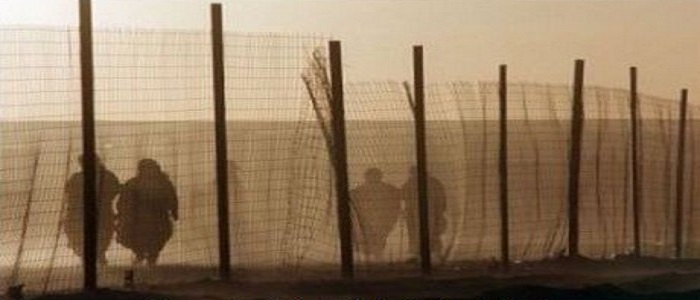
Human rights advocates have presented several testimonies at the 60th session of the United Nations Human Rights Council in Geneva,exposing the dire conditions of Sahrawis in the Tindouf refugee camps in Algerian soil and the persistence of slavery practices in these camps.
The speakers also pointed to the denial of development rights,drawing a parallel with the tremendous progress scored in Morocco’s southern province.
Speaking during the interactive dialogue with the Special Rapporteur on contemporary forms of slavery,jurist Lucia Ferreyra Perea denounced the reality of hereditary slavery and ongoing racial segregation in these camps run by the polisario armed group.
Taking the floor on behalf of the Independent Center for Research and Initiatives for Dialogue (CIRID),Ferreyra Perea mentioned the case of Mohammed Salem,a young Sahrawi who was barred from marrying because his family was considered to be of servile origin.
She described this situation as a “flagrant violation of human dignity,” calling on the HRC to launch an independent investigation into these practices.
For his part,Mostafa Maelainine,from the International Committee for the Respect and Application of the African Charter on Human and People’s Rights (ICRAC),referred to testimonies from former Sahrawi “refugees” reporting systemic discrimination targeting populations of servile descent.
He accused the polisario of instrumentalizing these practices to maintain social and political control over the camps populations,in blatant violation of international conventions on the abolition of slavery.
Maelainine also called on the Special Rapporteur to conduct an on-site visit and include these violations in his next report to the Council.
Both speakers stressed the urgency of guaranteeing the fundamental rights to freedom,dignity,and justice for the victims in the camps of Tindouf.
Dealing with the lack of development in the camps,other speakers,including Dahi Ahl El Khattat,a civil activist,exposed the blatant denial of the right to development for Sahrawis living in the Tindouf camps.
He stressed that this fundamental human right is being systematically violated,as the camps have been transformed into militarized zones controlled by armed groups with the backing of Algerian authorities.
This reality denies Sahrawis not only their right to development,but also their rights to property and economic independence,El Khattat deplored.
In contrast,he highlighted the progress made in Morocco’s southern provinces,where an $8 billion development program launched in 2015 has brought tangible improvements in education,healthcare,infrastructure,and employment.
These gains,which have been recognized in several United Nations reports,have translated into significant improvements in people’s daily lives.
He urged the Human Rights Council to address the plight of Sahrawis in Tindouf and hold Algeria,the host state,accountable for its international human rights commitments.
El Khattat stressed that Algeria has an obligation to guarantee Sahrawi civilians their right to development,just as their counterparts in Morocco’s southern regions already enjoy.
The activist emphasized that the Sahrawis still trapped in the Tindouf camps are “deprived of their freedom and the opportunity for a dignified life.”
Aicha Douihi,a human rights advocate,described the Tindouf camps in Algeria as a place where “the rule of law is absent and the right to development is out of reach.”
She explained that with the camps,now militarized zones controlled by Polisario and backed by Algeria,Sahrawis are deprived of core freedoms.
These include the rights to work,to own property,to move freely,and even to be formally recognized by international bodies like the UN Refugee Agency (UNHCR).
She urged the Human Rights Council to hold Algeria accountable to its international obligations.
She said that Sahrawis in Tindouf are denied their right to development,unlike their counterparts in Morocco’s southern provinces,where the $8 billion program launched in 2015 has brought real improvements and opportunities.
Douihi concluded with an urgent appeal for international action to ensure that the right to development is no longer just a theoretical promise,but a lived reality for everyone.
United News - unews.co.za